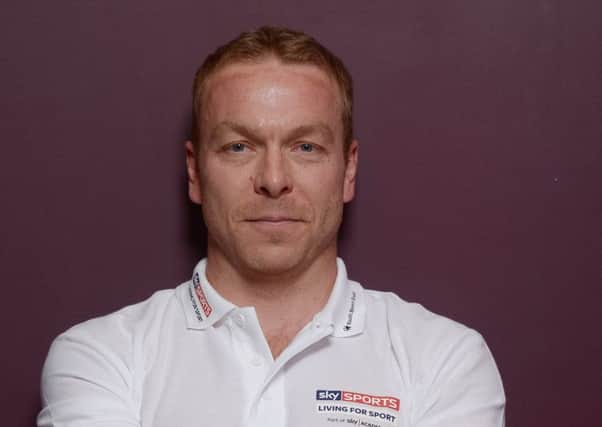Chris Hoy slams IOC for rejecting total Rio Games ban for Russia


Hoy, Scotland’s most successful Olympian, made his feelings known on social media site Twitter after the IOC’s executive board chose not to impose a blanket ban on the entire Russian team and instead asked each sport to vet proposed Russian competitors individually.
“What sort of message does this send out?” Hoy tweeted to his 678,000 followers. “Surely IOC’s job is to make crucial decisions rather than passing the buck.”
Advertisement
Hide AdAdvertisement
Hide AdThe IOC’s decision has also been criticised by veteran British athlete Jo Pavey, who will compete in a fifth Olympic Games after being selected to represent Team GB in Rio.
The 42-year-old long-distance runner posted on her Twitter account: “Such a disappointing decision by the IOC. Does not send out a strong message that doping will not be tolerated.”
Retired Scottish athlete Lee McConnell, who was denied her rightful Olympic bronze in the 4x400m relay from the Athens Games of 2004 due to the IOC’s failure to take away a dope-tainted US gold, said: “I’m so disappointed in the IOC but not surprised as they have failed clean athletes in the past. It’s such a weak decision.”
Travis Tygart, chief executive of the United States Anti-Doping Agency (Usada), also condemned the IOC. “In response to the most important moment for clean athletes and the integrity of the Olympic Games, the IOC has refused to take decisive leadership,” he said.
“The decision regarding Russian participation and the confusing mess left in its wake is a significant blow to the rights of clean athletes.”
Usada was one of many anti-doping bodies, including the World Anti-Doping Agency (Wada), that wanted IOC-level action against Russia. Tygart fears the other 27 federations that govern sports in the summer Games will not have the time or resources to do what the International Association of Athletics Federations (IAAF) spent months planning.
With Rio’s opening ceremony less than two weeks away, the IOC’s decision means each sport will have to make an “individual analysis” of every Russian competitor, which will then be subject to final approval by an “independent arbitrator” from the Court of Arbitration for Sport (CAS).
Tygart described this as a “glaring conflict of interest” and completely at odds with recent IOC statements that anti-doping decisions should be independent of sports.
Advertisement
Hide AdAdvertisement
Hide AdEarlier this month, the American agency proposed some selection criteria to Wada that it could suggest for each sport to follow. The criteria included a minimum number of out-of-competition tests over the last year, proof that each athlete had been tested for the full range of performance-enhancing drugs, and normal blood and hormone levels in their biological passport.
With many pundits wondering how that can be done for the nearly 400 athletes Russia hopes to bring to Rio, IAAF president Lord Coe has offered